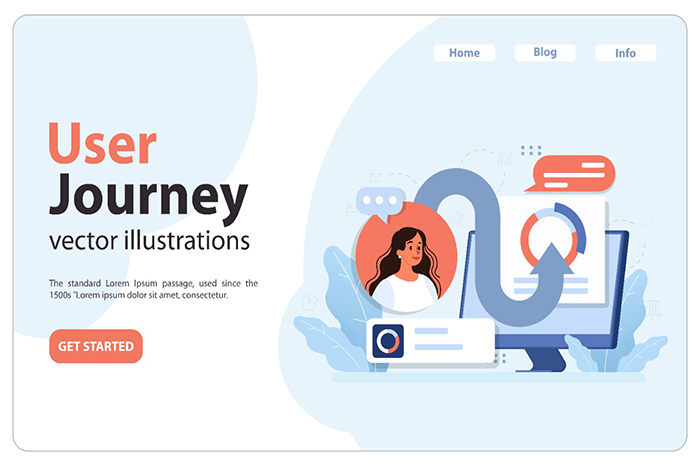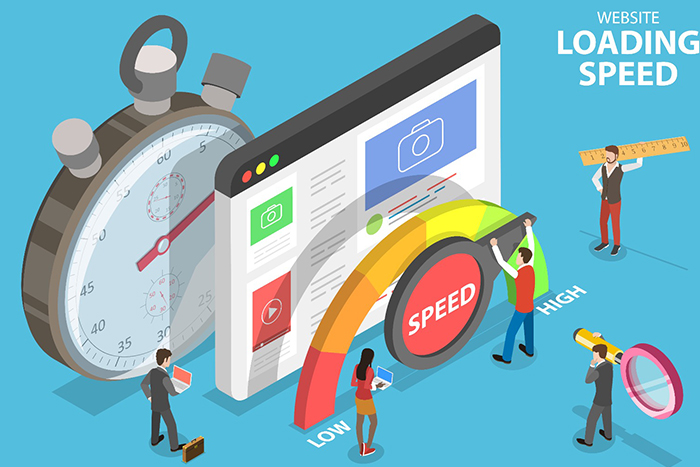In today’s digital-first marketplace, eCommerce has become a lifeline for small businesses aiming to reach new customers and streamline their operations. However, many small businesses often rely on off-the-shelf eCommerce solutions, hoping to cut costs and launch quickly. While these platforms can work for businesses just starting, they often fall short as the business grows, becomes more complex, and develops unique needs. For small businesses aiming for long-term success and scalability, investing in a custom-built eCommerce platform offers significant advantages. Let’s explore why building your platform could be the game-changing decision your business needs to grow efficiently and sustainably.
1. Tailored to Fit Your Specific Business Needs
Off-the-shelf eCommerce platforms such as Shopify, WooCommerce, and Magento offer general features designed to cater to a wide range of businesses. While they might work in the short term, their generic nature can often create challenges as your business grows or evolves. These platforms may lack the flexibility to integrate the specific functionalities your business requires, forcing you to pay for additional plugins or extensions.
A custom eCommerce platform, on the other hand, is built specifically for your business. Every feature, integration, and workflow can be designed to meet your exact needs. For instance, if you need advanced inventory management, customized product categorization, or unique customer loyalty programs, a custom solution can integrate these directly into the platform. There’s no need to conform to someone else’s software or spend time and money working around limitations.
This level of customization means you can design a seamless, efficient operation from the front-end shopping experience to back-end fulfillment and reporting.
2. Scalability and Flexibility for Growth
One of the primary reasons small businesses should consider building their own eCommerce platform is scalability. As your business grows, your eCommerce platform must grow with you. Pre-built solutions often have limits in terms of product listings, transaction volume, or integrations, and upgrading can involve substantial costs.
With a custom solution, scalability is built in from the beginning. You control the platform’s architecture, which means you can scale your operations without being locked into rigid pricing tiers or forced to pay for unnecessary features. Whether you plan to expand your product lines offer additional services, or enter new markets, a custom platform will adapt to your evolving needs. Moreover, a custom platform allows you to integrate advanced features over time. As new technologies, such as artificial intelligence (AI), machine learning, or augmented reality (AR), become more accessible, you can seamlessly incorporate these innovations into your eCommerce experience. This flexibility helps future-proof your business and keeps you competitive in a rapidly changing market.

3. Superior User Experience (UX) and Customer Journey
In today’s crowded eCommerce landscape, providing an exceptional user experience is crucial for standing out from competitors. Pre-built platforms often limit your ability to design the customer journey exactly as you want. From page layout to checkout flow, you are typically restricted to a handful of themes and pre-configured settings.
A custom eCommerce platform allows you to have full control over the design and functionality of your site. You can optimize the entire user experience, from when a customer lands on your homepage to the final checkout. Custom features such as personalized product recommendations, unique navigation structures, and specialized search functionalities can all be integrated to ensure customers find exactly what they’re looking for quickly and easily. A seamless and engaging shopping experience not only improves customer satisfaction but also boosts conversion rates and builds long-term loyalty.

4. Seamless Integration with Other Systems
Small businesses often have various software tools to manage their operations, including accounting software, customer relationship management (CRM) systems, inventory management, shipping solutions, and marketing platforms. Off-the-shelf eCommerce solutions may offer integrations with some of these tools, but these integrations are often basic or not suited to more complex operations.
A custom eCommerce platform allows you to integrate all of your existing systems seamlessly. Whether you need custom API integrations or advanced workflows, a custom solution ensures that your eCommerce site works in harmony with the rest of your business. This creates a more streamlined operation, reduces manual data entry, and minimizes the risk of errors. For example, if your business relies heavily on personalized marketing or needs to track inventory across multiple sales channels, a custom integration can automate these processes, saving you time and improving overall efficiency.

5. Enhanced Security and Compliance
Data security and compliance are top priorities for any business operating online. Pre-built platforms can sometimes fall short of providing the level of security that your business or your customers require. You’re also at the mercy of the platform’s security measures, meaning that if a vulnerability is discovered, you must wait for the vendor to issue a patch, potentially leaving your site exposed in the interim.
With a custom-built eCommerce platform, you have full control over security features. Your development team can implement advanced encryption, multi-factor authentication, and other security measures to protect sensitive customer data. Additionally, you can ensure that your platform complies with industry-specific regulations, such as PCI-DSS (Payment Card Industry Data Security Standard) for businesses that handle credit card payments. A tailored approach to security protects your business from data breaches and builds trust with your customers, ensuring they feel safe shopping with you.

6. Optimized Performance and Speed
Site speed and performance are critical factors that can impact customer experience and SEO rankings. Off-the-shelf platforms, which rely on shared resources and generalized frameworks, can sometimes struggle with performance issues as you scale. A custom-built eCommerce solution is optimized for performance from the ground up. Since the platform is built specifically for your business’s needs, no unnecessary features or plugins are slowing down the site. Additionally, a custom solution allows you to work with dedicated hosting environments, ensuring faster load times, even during high-traffic periods such as sales or promotions.
A faster, more reliable site improves your SEO rankings and reduces bounce rates, helping you to attract more customers and keep them engaged throughout the buying process. Website loading speed isometric landing page. Mobile site optimization digital concept, laptop with speedometer on screen. Internet page quick traffic loading, engine plugin test 3d vector web banner.

7. Cost-Effectiveness Over Time
At first glance, custom eCommerce platforms may seem more expensive than off-the-shelf solutions. However, while there is an upfront investment, custom platforms often become more cost-effective over time With a pre-built platform, you’re frequently locked into ongoing subscription fees, transaction costs, and fees for additional features, themes, or apps. Additionally, you may need to spend more on third-party plugins and developers to bridge the gaps in functionality.
By contrast, a custom-built platform provides ownership and control. Once developed, you’re not subject to recurring licensing fees; you only pay for the features and updates you need. In the long run, this can save your business a substantial amount of money, particularly as you scale.

Conclusion: A Strategic Investment in Long-Term Growth
Building a custom eCommerce platform is not just about getting your store online —it’s about creating a flexible, scalable, and future-proof system that can grow alongside your business. While the initial investment may be higher than opting for an off-the-shelf solution, the long-term benefits in terms of scalability, customization, and cost savings make it the superior choice
for small businesses with ambitions to scale
A custom platform is the key to unlocking sustained growth and success for businesses that want to stand out in a competitive market, offer a tailored user experience, and have full control over their e-commerce operations. By working with a trusted development partner who understands your business’s unique needs, you can create an eCommerce platform that isn’t just a sales tool, but a strategic asset
Custom eCommerce Platform FAQ
1. Why should a small business consider a custom eCommerce platform over a pre-built solution?
While pre-built platforms offer convenience and affordability for starting, they can become limiting as your business grows. A custom platform provides several advantages. Tailored to your needs: Every feature is designed specifically for your business, maximizing efficiency and eliminating reliance on generic plugins or workarounds.Scalability: A custom platform grows with your business, allowing you to expand product lines, handle increased traffic, and integrate new technologies as needed.Superior UX: You have complete control over the customer journey, enabling you to create a unique and engaging shopping experience that sets you apart from competitors.
2. How does a custom platform offer better scalability than off-the-shelf options?
Built platforms often have limitations on product listings, transaction volume, and integrations, requiring costly upgrades as your business expands. On the other hand, a custom solution is built with scalability in mind. You control the architecture, allowing you to scale operations without rigid pricing tiers or unnecessary features. This ensures your platform can adapt to evolving needs, from expanding product lines to incorporating new technologies like AI or AR.
3. What are the benefits of having a custom platform in terms of user experience (UX)?
With a custom platform, you have complete freedom to design the customer journey. You can optimize everything from page layout and navigation to the checkout flow, ensuring a seamless and engaging experience. This allows you to implement features like personalized product recommendations and unique search functionalities, helping customers find what they need quickly and easily. This level of control over UX leads to increased customer satisfaction, higher conversion rates, and improved brand loyalty.
4. Can a custom eCommerce platform integrate with my existing business systems?
Absolutely. A custom platform allows for seamless integration with other business systems like accounting software, CRM, inventory management, and marketing platforms. Custom API integrations and workflows ensure your eCommerce site works harmoniously with your existing tools, streamlining operations, reducing manual data entry, and minimizing errors. For instance, you can automate personalized marketing campaigns or track inventory across multiple sales channels through custom integrations
5. How does a custom platform provide better security and compliance compared to pre-built platforms?
With a custom platform, you have full control over security measures. Your development team can implement advanced encryption, multifactor authentication, and other safeguards to protect sensitive customer data. You can also ensure compliance with industry regulations like PCI-DSS. This tailored approach to security protects your business from data breaches and builds trust with your customers.
6. Will a custom eCommerce platform be faster and perform better than a pre-built platform?
Yes, a custom platform is built for optimal performance from the ground up. It’s designed specifically for your business needs, eliminating unnecessary features or plugins that can slow down the site. Additionally, you can leverage dedicated hosting environments, ensuring faster load times even during peak traffic periods. This results in improved SEO rankings, lower bounce rates, and a better overall customer experience.
7. Are custom eCommerce platforms more cost-effective in the long run?
While the initial investment for a custom platform may be higher than a pre-built solution, it often becomes more cost-effective over time. You avoid recurring subscription fees, transaction costs, and the need to purchase additional features or apps. Moreover, you eliminate the ongoing expenses associated with third-party plugins and developers. In the long run, owning and controlling your platform translates to substantial cost savings, especially as your business scales.
8. What is the key takeaway for small businesses considering a custom eCommerce platform?
Building a custom eCommerce platform is a strategic investment in long-term growth. It provides the flexibility, scalability, and control necessary to create a unique online presence, optimize the customer experience, and adapt to the ever-changing eCommerce landscape. While the initial investment may be higher, the long-term benefits far outweigh the costs for ambitious small businesses aiming for sustained success.
